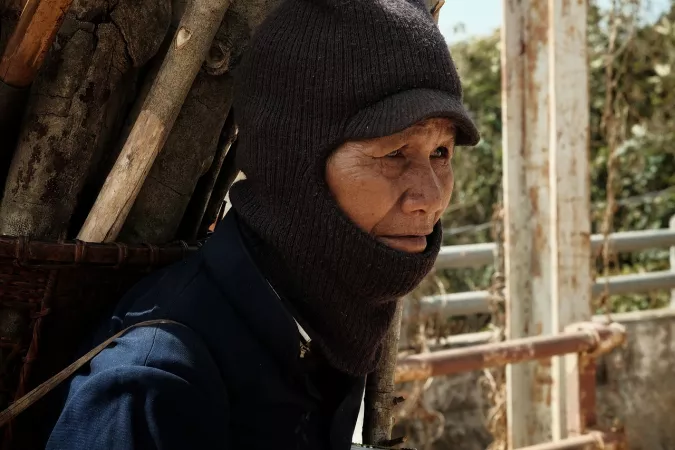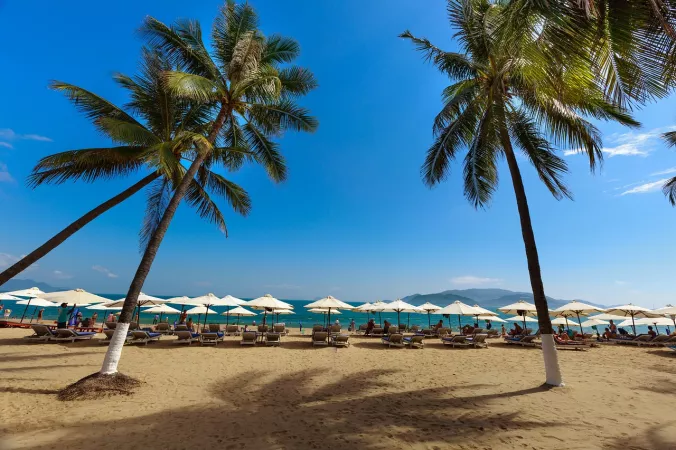
Hai Van Pass
Duration
1 to 1 Days
1 to 1 Days
Best time to visit
Mar-Oct
Mar-Oct
Theme
Hill Station, Adventure, Heritage
Hill Station, Adventure, Heritage
Hai Van Pass Travel Guide
Vietnam's Hai Van Pass is a picturesque mountainous road that stretches along the coastline, offering breathtaking views of the East Sea. Historically, it served as a natural barrier that divided the ancient kingdoms of Champa and Dai Viet. The pass has been featured in popular culture, including the Top Gear television series, making it a famous destination for road trip enthusiasts and nature lovers alike.Top Attractions in Hai Van Pass
1. Hai Van Gate 2. Lang Co Beach 3. Marble Mountains 4. Da Nang City 5. Elephant SpringsHai Van Pass is Famous for
Its stunning coastal views and historical significance.Top Attractions in Hai Van Pass
- Hai Van Gate - Lang Co Beach - Marble Mountains - Da Nang City - Elephant SpringsWhat's Great about Travelling to Hai Van Pass?
- Scenic views along the coastal road - Rich historical heritage - Ideal for road trip enthusiasts - Perfect destination for nature loversWhat's Not So Great about Travelling Hai Van Pass?
- Limited public transportation options - Road conditions can be challenging in some areas - Crowded during peak tourist seasonsTravel Tips for Hai Van Pass
- Check weather conditions before embarking on the journey - Renting a motorbike is a popular way to explore the pass - Carry enough water and snacks for the trip - Be cautious while driving on winding roadsImportant Hai Van Pass trip information
- Ideal Duration: A day trip is sufficient to explore the pass.
- Best Time to Visit: The best time to visit is during the dry season from March to September.
- Nearby Airports and Railway Stations: The nearest airport is Da Nang International Airport, and the closest railway station is in Da Nang City.
FAQ's on Hai Van Pass
Q1: What is the best time to visit Hai Van Pass?
The best time to visit Hai Van Pass is during the dry season from March to August when the weather is sunny and ideal for exploring the scenic route. Avoid the rainy season from September to November as the road can be slippery. The peak tourist season is from June to August, so consider visiting during shoulder months for fewer crowds.
Q2: Do I need a visa to travel to Hai Van Pass?
Most tourists can enter Hai Van Pass visa-free for stays of up to 30 days. Check with the Vietnamese embassy or consulate in your country for specific visa requirements. Some nationalities may be eligible for visa on arrival. Ensure your passport is valid for at least six months beyond your stay.
Q3: What are the must-visit attractions in Hai Van Pass?
The must-visit attractions in Hai Van Pass include the iconic mountain pass itself, offering stunning views of the coastline. Don't miss the Hai Van Gate, remnants of the old military base, and the picturesque Lang Co Beach. Explore the nearby Marble Mountains for caves and pagodas, and visit the historic city of Da Nang for its vibrant nightlife and cultural sites like the Dragon Bridge.
Q4: Is Hai Van Pass a safe place to travel?
Hai Van Pass is generally safe for tourists, but exercise caution while driving or riding along the winding mountain road. Be aware of sudden weather changes and slippery conditions. Avoid isolated areas at night and take standard safety precautions for your belongings. Stay informed about any travel advisories or road conditions.
Q5: What is the local currency in Hai Van Pass and can I use credit cards?
The local currency in Hai Van Pass is the Vietnamese Dong (VND). While credit cards are accepted in major hotels, restaurants, and shops in urban areas, it's advisable to carry cash for smaller vendors and markets. ATMs are available in cities like Da Nang for currency exchange and withdrawals.
Q6: What is the local cuisine like in Hai Van Pass?
The local cuisine in Hai Van Pass is a delightful mix of fresh seafood, flavorful noodles, and unique street food. Try specialties like Banh Xeo (crispy pancakes), Banh Mi (Vietnamese sandwiches), and Cao Lau (noodle dish). Seafood lovers will enjoy grilled fish and shrimp dishes. Vegetarians can savor fresh spring rolls and tofu-based meals. Be open to trying local delicacies from roadside stalls and markets.
Q7: What transportation options are available in Hai Van Pass?
Transportation options in Hai Van Pass include renting a motorbike or car to traverse the scenic route at your own pace. Alternatively, hire a private driver for a more relaxed journey. Public buses connect major cities like Da Nang and Hue, while taxis are available for shorter distances. Joining a guided tour is a convenient way to explore the pass and nearby attractions.
Q8: Are there any cultural norms or etiquette I should be aware of when visiting Hai Van Pass?
When visiting Hai Van Pass, respect local customs by dressing modestly, especially when visiting temples or pagodas. Remove your shoes before entering someone's home or a sacred site. Greet locals with a smile and a slight bow as a sign of respect. Avoid public displays of affection and be mindful of your behavior in religious places. Learn a few basic Vietnamese phrases to show appreciation for the local culture.
Q9: I am a travel agent. How can I buy travel leads of Hai Van Pass?
Register yourself as a travel agent at agents.tripclap.com and then you can buy travel leads to Hai Van Pass once your account is approved. For more details contact our support team at +91-8069186564 or support@tripclap.com






